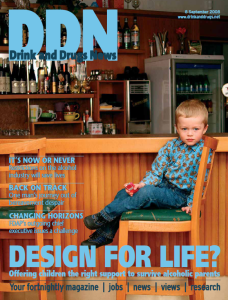Peter McDermott remembers friend and colleague, Alan Joyce
It is with great sorrow that I announce the death of Alan Joyce.
I first came across Alan when he started working as a volunteer for the Methadone Alliance. He popped up on some of the harm reduction mailing lists, full of passion for his new role, and with an interest in politics and post-structuralist philosophy.
An ex-art student, Alan had studied Fine Art at St Martin’s College and had had a career in the London theatre before his drug use eventually got the better of him. He’d been struggling with the implications of the policies of his local treatment provider when he learned about the Methadone Alliance, and had Bill Nelles, the Alliance’s founder and director, advocate on his behalf. It wasn’t long before Alan was volunteering for the Alliance himself, and then shortly after that he was appointed as senior advocate, handling the most complex advocacy cases across the UK.




















































Nothing to declare
I had gone to India to sort myself out – kick the heroin and get some hash to smuggle back to London once things had calmed down. Several years later and I was begging on the streets, scamming tourists, and my heroin addiction had gone from smoking to injecting. India wasn’t turning out to be my saviour. I was dying and it had nothing to do with where I was. It was the alcohol and drugs killing me – but I couldn’t stop.
I remember the moment of clarity. It was in a seedy bed and breakfast with my junkie girlfriend Debbie, her neck stuck out begging for a hit, a prostitute and her pimp boyfriend in the corner. For the first time I was watching myself from above. I didn’t recognise me. I wasn’t a big time dealer. I wasn’t a popular guy. I wasn’t even a half decent petty criminal. I was a junkie. A junkie with a needle in my arm and no friends who were any different. Worse than all that – I had a full-blown disease that needed medication every minute of every day and what was cheap before was now becoming impossible.